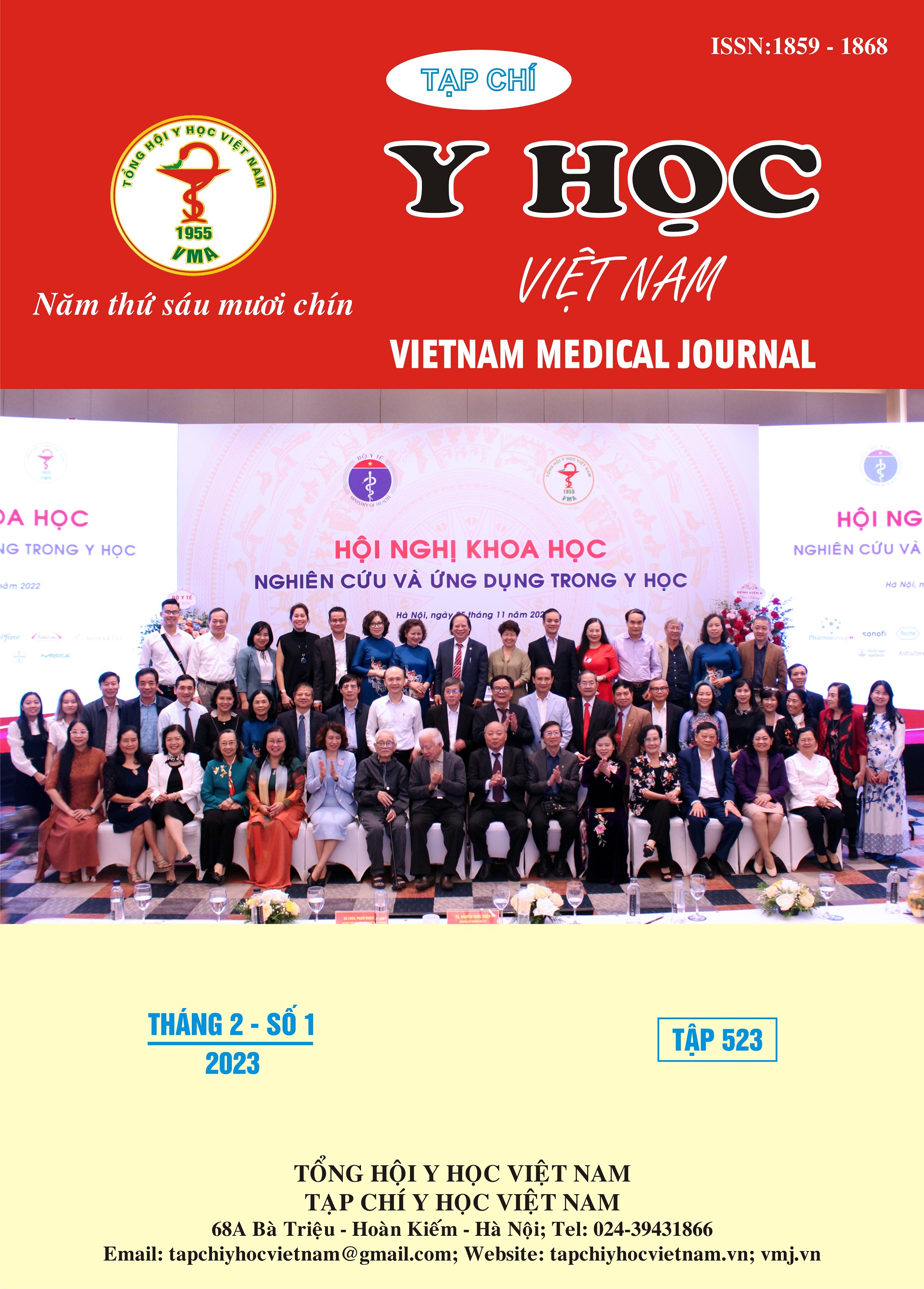TỶ LỆ NHIỄM SARS-COV-2 Ở BỆNH NHÂN ĐẾN KHÁM VÀ ĐIỀU TRỊ TẠI BỆNH VIỆN ĐA KHOA TỈNH NINH THUẬN NĂM 2022
Nội dung chính của bài viết
Tóm tắt
Đặt vấn đề: Ca nhiễm SARS-CoV-2 được báo cáo lần đầu tiên vào năm 2019 và kể từ đó đã lan rộng khắp thế giới. Mục tiêu: Xác định tỷ lệ nhiễm SARS-CoV-2 và nồng độ một số xét nghiệm cận lâm sàng ở bệnh nhân nhiễm bệnh. Phương pháp: Nghiên cứu cắt ngang mô tả trên 600 bệnh nhân đến khám và điều trị tại BV đa khoa tỉnh Ninh Thuận từ tháng 1-9/2022. Kết quả: 33/600 BN được xác định nhiễm SARS-CoV-2 (5,5%), nam 4,8% và nữ 5,8%, tuổi trung vị BN nhiễm là 36 tuổi. Đa số nhiễm nhẹ (75,8%). Trung vị số lượng bạch cầu ở BN nhiễm SARS-CoV-2 là 4600/ mm3, lympho 1.100/ mm3, tiểu cầu 180.000/ mm3, hemoglobin 12,2 g/dl, CRP > 10 mg% chiếm 9,1%, ferritin 200 ng/mL, có sự khác biệt về trung vị số lượng bạch cầu; lympho; ferritin giữa 2 nhóm nhẹ và trung bình với nặng (p<0,05). Điểm cắt xác định mức độ bệnh trung bình và nặng ở BN nhiễm SARS-CoV-2 của lympho ≥ 900/mm3 (AUC=0,8, p<0,01, độ nhạy 92%, đặc hiệu 88%) và ferritin ≥ 266ng/ml (AUC=0,9, p<0,001, độ nhạy 88%, đặc hiệu 92%). Kết luận: Khoảng 5,5% BN nhiễm SARS-CoV-2 đến khám và điều trị tại BV. Lympho và ferritin có giá trị trong việc xác định mức độ bệnh trung bình và nặng ở BN nhiễm SARS-CoV-2.
Chi tiết bài viết
Từ khóa
SARS-CoV-2, Bệnh viện Đa khoa tỉnh Ninh Thuận.
Tài liệu tham khảo
2. Chen G, Wu D. I, Guo W, et al (2020), “Clinical and immunological features of severe and moderate coronavirus disease 2019”, The Journal of clinical investigation, 130(5), 2620-2629.
3. Guan W. J, Ni Z. Y, Hu Y, et al (2020), “Clinical characteristics of coronavirus disease 2019 in China”, New England journal of medicine, 382(18), 1708-1720.
4. Jacob L, Koyanagi A, Smith L, et al (2021), “Prevalence of and factors associated with COVID-19 diagnosis in symptomatic patients followed in general practices in Germany between March 2020 and March 2021”, International Journal of Infectious Diseases, 111, 37-42.
5. Liu T, Zhang J, Yang Y, et al (2020), “The potential role of IL-6 in monitoring severe case of coronavirus disease 2019”, MedRxiv.
6. de Lusignan S, Dorward J, Correa A, et al (2020), “Risk factors for SARS-CoV-2 among patients in the Oxford Royal College of General Practitioners Research and Surveillance Centre primary care network: a cross-sectional study”, The Lancet Infectious Diseases, 20(9), 1034-1042.
7. Mani N. S, Budak J. Z., Lan K. F, et al (2020), “Prevalence of coronavirus disease 2019 infection and outcomes among symptomatic healthcare workers in Seattle, Washington”, Clinical Infectious Diseases, 71(10), 2702-2707.
8. Setiadi W, Rozi I. E, Safari D, et al (2022), “Prevalence and epidemiological characteristics of COVID-19 after one year of pandemic in Jakarta and neighbouring areas, Indonesia: A single center study”, PloS one, 17(5), e0268241.
9. Wang D, et al (2020), “Clinical characteristics of 138 hospitalized patients with 2019 novel coronavirus–infected pneumonia in Wuhan”, China. Jama, 323(11), 1061-1069.


